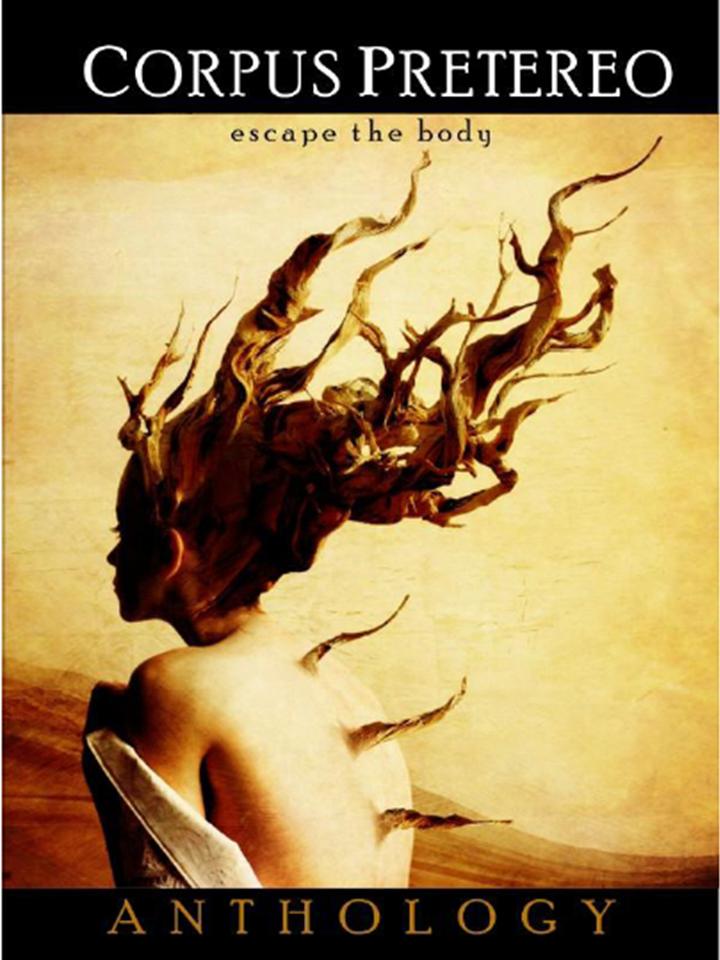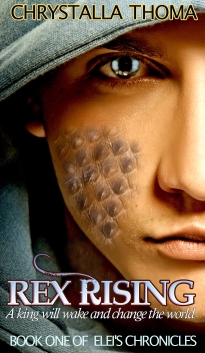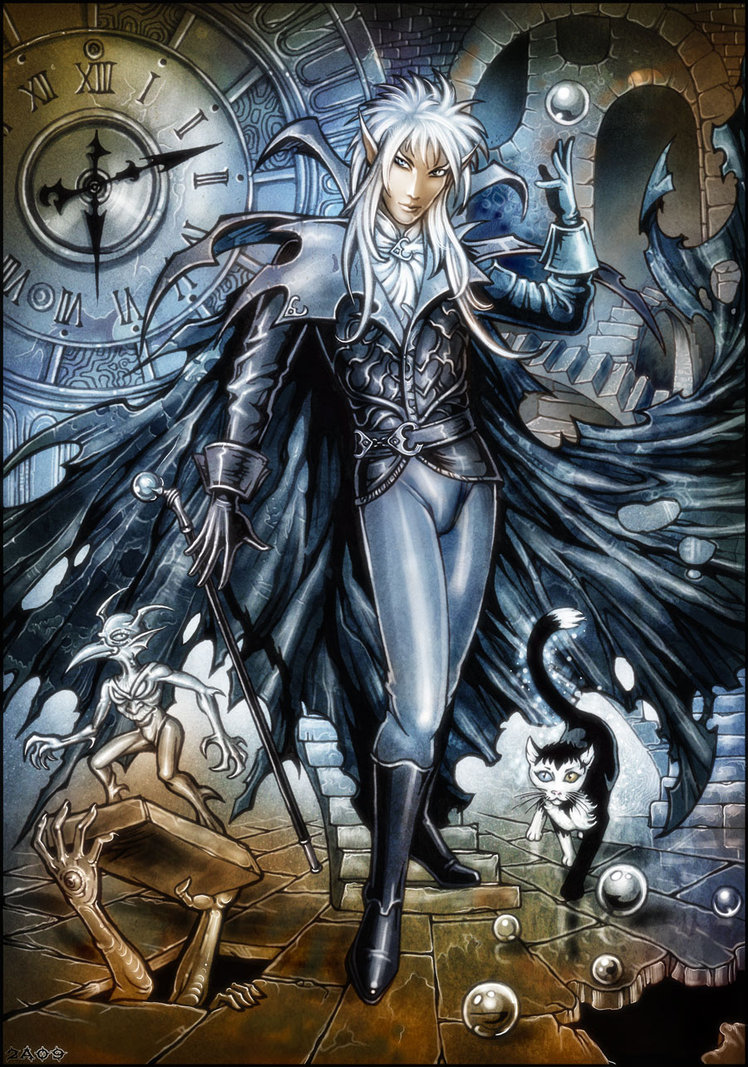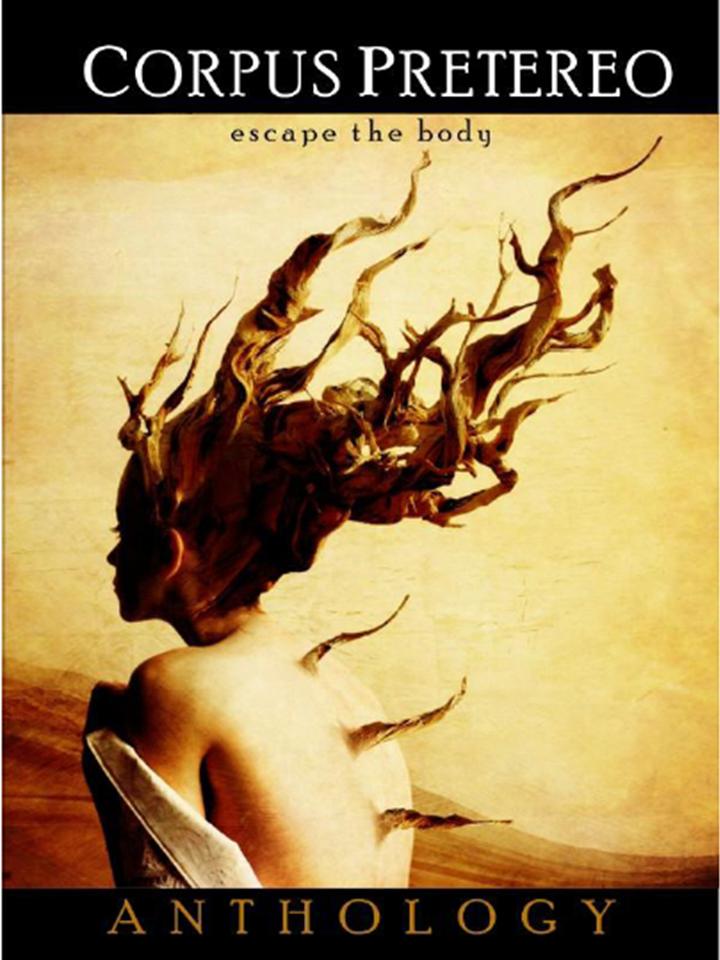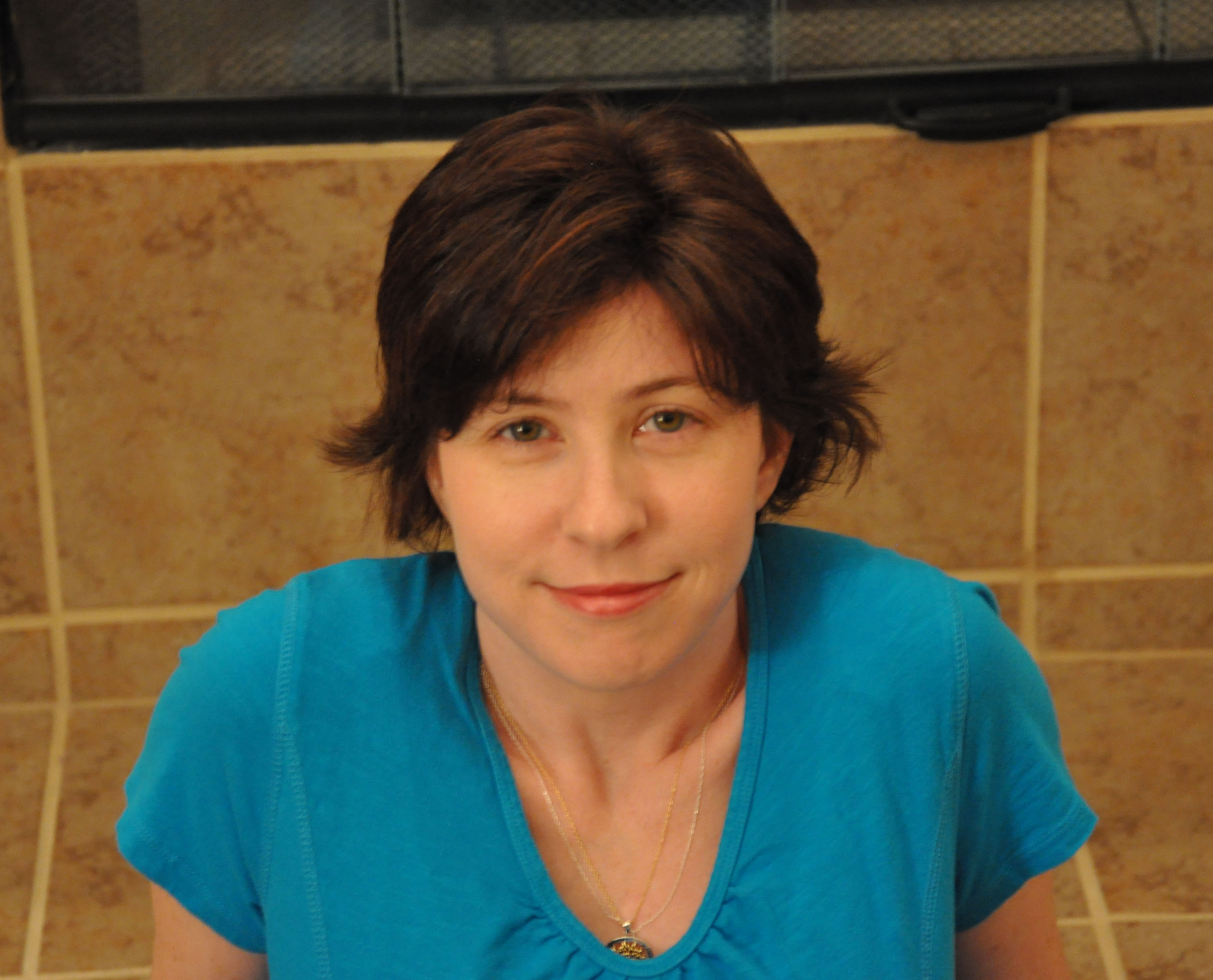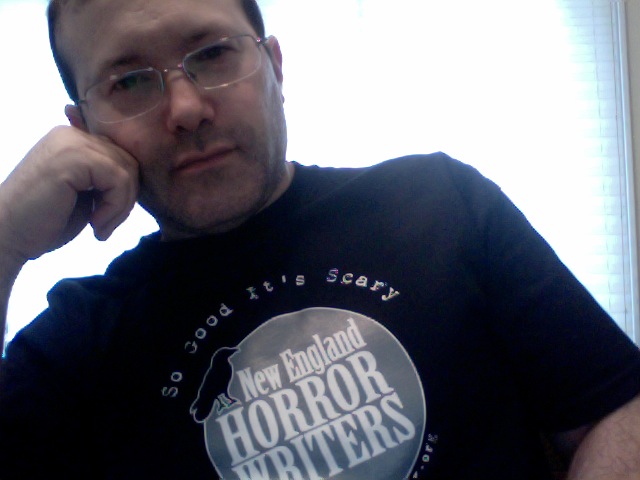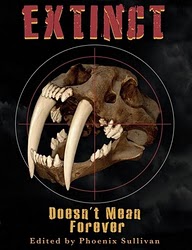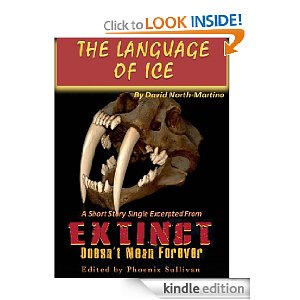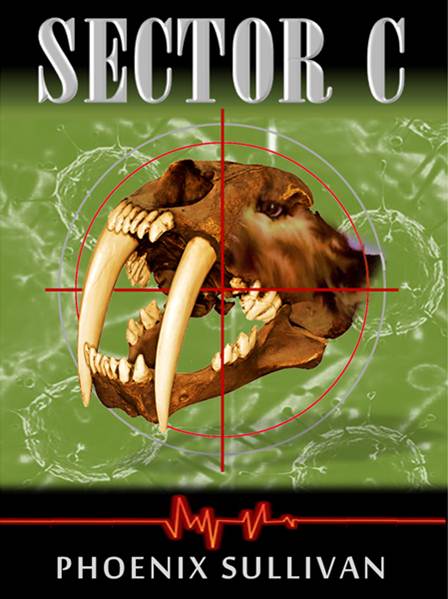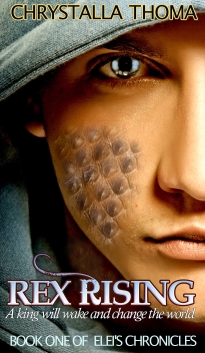A year is ending – Long live new year 2012!
It’s tradition to account for the ending year and to lay out the plans for the next, so here I go:
2011 was an interesting year. Lots has happened writing and publishing-wise in my life.
I published my YA urban fantasy novella Dioscuri with MuseItUp and finally accepted that I tend to write for Young Adults and better own to it. So yes, this year I declared publicly that I’m a YA author. I’m out of the closet.
I also wrote and submitted another novella set in the world of Diocsuri, this one about Theseus and the Minotaur. I don’t know yet if it has been accepted or not.
I also published short stories in magazines/anthos.
And I self published my YA novel Rex Rising. This was a high point of my year, as I had vacillated a lot between traditional publishing and self publishing for this one. Self publishing won out – mostly because I was so curious to try it out. I’m happy with my decision. I learned a lot about editing and beta readers, formatting, cover design, pricing and marketing.
I also wrote Book two of this series to self publish soon and started on Book 3.
I also started a LBGT YA novel. This had been on my mind for a while but I was hesitating – just because it’s something new for me. But I love writing it and I plan to sub it to a traditional publisher.
PLANS for 2012:
Finish Book 3 of the YA series and self publish the whole series.
Finish LBGT YA novel and sub it.
Finish my Reversal trilogy (epic fantasy – I have 1, 3/4 books written, but first book needs a complete re-haul anyway) and sub it
Write my Beautiful Dead trilogy (Steampunk paranormal set in Cyprus) and sub it.
Some short stories for contests and anthos and some novellas…
Oh and a non fiction book! About dragons! I must write and sub the proposal in January!
What, not enough?
We’ll just have to see. It’s a new year. One can dream, right? And dreams sometimes come true. 🙂
Happy New Year 2012!
(Akrotiri, Limassol, Cyprus, Dec 2011)
A shiny anthology of the fantastic for shiny days
Merry Xmas everyone! May your days be full of joy and smiling faces and may your electronic readers be full of wonderful stories to read.
Christmas time always seemed to me the best time for fantasy. It’s a time of magic and possibility and am on the lookout for great books to load on my kindle and read curled in my warm nest of blankets, with a glass of brandy in my hand…
How about an anthology with great fantasy stories? Escape Collective Publishing has released recently Corpus Pretereo (I escape my body), a collection of stories by an international group of writers exploring the idea of ‘Escape’. From dark fantasy to sweet surrealism, biting humor to straight out horror, these 16 tales showcase the best of fantastic fiction, in every sense of the word.
In Corpus Pretereo you can read my story “Dreamdancer”. Dreamdancers are a race related to elves who can control their dreamscapes and invite others in them.
In this story, dreamdancer Aivar has fled the devastation of his homeland and must whore his dreams out to humans to scrape by day to day. To save a sick friend from death, he pretends to posses a higher level of dream control. But when this deception causes a vicious customer to wound him, only an old love of his, a High Elite kinswoman, can save him. However, the price may be more than he is willing to pay.
I loved writing this story and I hope you will enjoy reading it. 🙂
And one more thing: Because it’s Xmas, ECP announces that we will donate all ECP profits for our book sales today to ProLiteracy, a charity that supports literacy in the US and around the world.
So here are the arguments. If you look for some great fantasy, here is a suggestion for you.
Rex Rising
In a world where parasites create new human races, Elei leads a peaceful life — until a mysterious attack on his boss sends him fleeing with a bullet in his side. Pursued for a secret he does not possess and with the fleet at his heels, he has but one thought: to stay alive. His pursuers aren’t inclined to sit down and talk, although that’s not the end of Elei’s troubles. The two powerful parasites inhabiting his body, at a balance until now, choose this moment to bring him down, leaving Elei with no choice but to trust in people he hardly knows. It won’t be long before he realizes he must find out this deadly secret – a secret that might change the fate of his world and everything he has ever known – or die trying.
Spaces between novels
Once upon a time, I wrote novels. Truly, I did. Like many novelists out there, I started out young and produced my first big work – a colossal epic fantasy of about 700 hand-written pages – at around age 12. Mark that I wrote it in Greek, my mother tongue. I still have it (the book, but also the tongue :p). Bad or not (bad, very bad…), it was my first foray into this hereto uncharted for me territory, and it taught me this: I could do it.
This lesson has stayed with me and gave me self confidence. If I did it once, I could do it again. And I did.
Fast-forward a few years (or more than a few), and here I am, writing novels again (I had stopped for a few years, my mind too caught up in my studies). I learned many essential things in this period, not least that I could write in a foreign language (English) and that the story and characters trumped the style used in writing any day (but not overly much – after all, style and voice ARE important).
And I learned one more important thing: leaving a novel to rest for a month or two isn’t a bad thing – it is in fact recommended.
Leaving a novel to rest a year or two is a bad, bad thing.
Not only does the story fossilize somehow (it is there, set on paper on screen for so long that it turns from story into history, deceptively “true” and unable to change) – but also as the author evolves, it becomes harder and harder to go back and a) revise, b) recapture the spirit and voice of the story as it had been conceived originally.
Cue dramatic and angsty music. The novel is dead, long live the novel! I did manage to resuscitate stories and novels, but it was rarely a revision and rather a complete rewrite of the book. Which defeats the purpose somehow. Write the novel. Let it rest just a little, let the yeast work. Then attack it with vigor and shape it while it’s still warm and pliable.
Unless you’re satisfied with it (as much as you can, perfectionist author that you are), don’t set it completely aside.
Because then you will find that the spaces between novels contain much more dark matter than the spaces between the planets.
(from http://www.universetoday.com/15502/planets-in-the-solar-system/)
Author Interview: Chloe Jacobs
Chloe Jacobs is a writer of YA fiction and she graciously agreed to an interview with me today, letting us know about her upcoming book Greta and the Goblin King, a “cross between Alice in Wonderland, Labyrinth and Hansel and Gretel”. Sounds exciting!
Chrys: Hi dear Chloe and welcome to my blog! Why don’t you tell us a few words about yourself first?
Chloe: Hi, and thanks for letting me visit! I’m really excited.
Chrys: What genre(s) do you write and why?
Chloe: I write young adult dark fantasy. Why? You know, I’ve never been asked that. I don’t think I ever really decided I was going to be a fantasy author, but that’s the story that came out of me. I suppose at some point I’ll decide to branch out and try something else as well, but for now I’m perfectly happy with it.
Chrys: What can you tell us about your writing projects and recent releases?
Chloe: I’m currently working on edits for the first book in my series for Entangled Publishing. It’s called GRETA AND THE GOBLIN KING and I call it my cross between Alice in Wonderland, Labyrinth and Hansel and Gretel. It’s due to be released in late 2012.
Chrys: Tell us about your latest release (could include blurb, small excerpt like 200 words).
Chloe: While trying to save her brother from the witch’s oven three years ago, seventeen-year-old Greta was thrown into the fire herself, falling through a portal to a dangerous world where humans are the enemy, and every ogre, goblin, and ghoul has a dark side that comes out with the full moon.
To survive, Greta has hidden her humanity and taken the job of bounty hunter—and she’s good at what she does. So good, in fact, that she’s caught the attention of Mylena’s young Goblin King, the darkly enticing Isaac, who invades her dreams and undermines her determination to escape.
But Greta’s not the only one looking to get out of Mylena. The full moon is mere days away, and an ancient evil knows she’s the key to opening the portal. If Greta fails, she and the boys she finds stranded in the woods will die. If she succeeds, Greta will be forced to give up the only thing in this world worth keeping and, worse, no world will be safe from what follows her back…
Goblin King, by Candra
(http://candra.deviantart.com/art/Goblin-King-128498863)
(Not the book cover!)
Chrys: What gave you the idea for this book?
Chloe: You know, I can’t remember exactly what it was that got me started on this book, but I remember very clearly seeing Greta in my head. I knew she was tough, but lonely. Lost, but strong. I knew that the Goblin King wanted her…and that he wasn’t going to be the type of character to play fair.
Chrys: What is special about this book – what sets it apart?
Chloe: This book is special to me because it’s my first foray into writing YA. It’s so much fun and there are so many possibilities in YA. I’m having a really fantastic time!
Chrys: Do you have a favorite scene in the book?
Chloe: One of my favourite scenes is a pretty sad scene. It comes when Greta has just found her pater has been murdered, and she can’t keep the pain inside, even though it kills her to show any weakness in front of Isaac, the Goblin King. And then he surprises her—not by taking advantage of her like she thought he would, but by helping her.
Chrys: What kind of research did you do for this story?
Chloe: The only research I did was to review some fairytale lore. My books can (very loosely) be considered fairy tale re-tellings. Other than that, it all comes from here *taps forehead*
Chrys: Reading fairytales is valid research to me! 🙂 Where can people learn more about you and your writing?
Chloe: I’m online! Visit my website at www.chloejacobs.com and find me on twitter at www.twitter.com/Jacobs_Chloe
Thanks so much for letting me hang with you today!
Chloe Jacobs
What it means to be a novelist (and the issues)
Hi everyone. Long time no see. No read. Whatever.
I decided I need to write more on my blog, use it as the sort of journal I never kept. A means for expressing my frustrations and happy discoveries and taking you along for the ride – if you’re reading this.
Well, first of all, I realized I haven’t talked much about what is happening in my life right now. I focused a lot on interviews with other authors, which is fun and interesting (and there will be more of those soon!) but let’s see what I have been doing:
I think the last time I set out my goals was at least a year ago. Back then I was working full time and vacillating between self publishing or going the traditional route. I was also just realizing back then that my writing is mostly addressing a Young Adult audience – I don’t mean children or teenagers really, but young adults (from 16 to 86 or so). 🙂
Cue dramatic music, a year goes by.
I had to quit my job due to stress-related headaches, and I sat down to write in all seriousness and devotion.
I published a YA novella with MuseItUp publishing set in an alternate modern day Greece with ancient gods coming back to life (Dioscuri).
I self published my YA novel “Rex Rising” and a novelette set in the same world (Hera), and already wrote the sequel (in revisions now).
I wrote another novella set in the world of Dioscuri, to be submitted now.
I wrote several short stories, many of which have already been published or are in the progress of being published.
Overall, then, it was a good year for writing and publishing. Since I left work, a good year in general. 🙂
But what does it mean to be a novelist?
First of all, it’s not the same as being a writer. It’s being a writer but it’s even more difficult (and personally I think more rewarding).
First of all it means to be full time occupied with stories. You don’t just sit and write. You create a world, find a premise, create the characters, find the conflicts, the purpose, the twists of the story.
Then you sit to write. And write. And write.
No, it’s not the same as writing short stories or poems. Writing lengthy fiction (novelettes, novellas and above all novels) takes a lot of time. No, you can’t just go around gathering ideas and jot them down, no that’s not enough. To write a novel takes months and sometimes years. Think short story not only multiplied by hundreds, but also entwined and complex. Now imagine a series of novels, a trilogy for instance.
So yes, I do need days and days alone, sitting at my computer, just to produce some chapters. That’s a hell more than a few short stories.
And then come the revisions, sometimes ten of them. That can take months too.
So this is what it means to be a novelist.
I had to get his off my chest. 😀 Soon I will have another guest interview coming up, and then I can talk and rant and rave some more.
Good day all!
Guest Authors Eric Zawadzki and Matthew Schick
Today my guests are authors Eric Zawadzki and Matthew Schick. They agreed to hop over today and talk about themselves, their writing and their YA epic fantasy novel “Kingmaker”. 🙂
Chrystalla: Hi Eric and Matthew, and welcome to my blog! Why don’t you tell us a few words about yourselves first?
Eric: Matt and I have be en writing together since we were 14, which is 20 years as of last month. We’ve come a long, long way since our early efforts (as we detail pretty thoroughly in our blog). I’m an extroverted geek – what I’ve sometimes heard called a humanities geek, meaning I like science well enough, but what really gets me excited are people and relationships and the exploration of our shared humanity through the arts.
en writing together since we were 14, which is 20 years as of last month. We’ve come a long, long way since our early efforts (as we detail pretty thoroughly in our blog). I’m an extroverted geek – what I’ve sometimes heard called a humanities geek, meaning I like science well enough, but what really gets me excited are people and relationships and the exploration of our shared humanity through the arts.
Matt: As Eric said , forever and a day working together. It’s been exciting. I’m a journalist first, and he’s an English major first, and so if you see an adverb, it’s probably not mine.
, forever and a day working together. It’s been exciting. I’m a journalist first, and he’s an English major first, and so if you see an adverb, it’s probably not mine.
Chrystalla: It sounds like you have the perfect blend of knowledge and enthusiasm to create fantastic books! What genre(s) do you write and why? Why YA?
Eric: We write high fantasy – that is, fantasy that takes place in a world different from our own. Everyone always thinks of Tolkien and many dismiss it as nothing but elves, dwarves, and Dark Gods, but this really doesn’t do the genre justice. Really good high fantasy is limited only by the imaginations of the authors writing it, because it gives us a chance to explore an entire world through a different lens.
Our central assumption is that each book we write should reflect the fantasy culture about which it is written, almost as if it was written by an author living in that world. By the time we got just a little way into the second draft of Kingmaker, we knew we had a YA fantasy novel on our hands. This had less to do with the teenage protagonist (which is nothing new even in fantasy aimed at adults) and more to do with what the magic so central to the story implied about the relationship between generations (more on that in a bit).
Chrystalla: What can you tell us about your writing projects and recent releases?
Eric: We released Kingmaker at the end of September. We’ll be releasing Lesson of the Fire in the spring, which is aimed at an older audience and concerns the rise to power of a possibly mad wizard-king. That one is ready to go (you can read the opening chapters of it at the back of any Kingmaker ebook), but we decided early on to space out our releases at least 6 months. I’m currently actively working on our release for next fall, and Matt will be starting work on the Kingmaker sequel for release probably in late 2013.
So yeah, we have a very busy production schedule, which suits both of us just fine. We’d be lying if we said we have 20 years of manuscripts to polish and publish, because 95% of it really isn’t of publishable quality. However, we definitely have 20 years worth of ideas and story seeds at our disposal. The world has been rolling around like a snowball in a huge field of wet, sticky snow. We’ll likely never even get through all of our best ideas, but we’re willing to give it the old college try!
Matt: I’ve got a huge bin of first drafts and revisions. I’m looking forward to getting going on the Kingmaker sequel, if only because there’s so much cut material from this book I can work with. But the new story will be, well, new. One thing brilliant about the upcoming stuff is that it’ll be less “20 years of polishing/rewriting/discarding” and more “12 months of frenzied activity.”
Chrystalla: Tell us about your latest release.
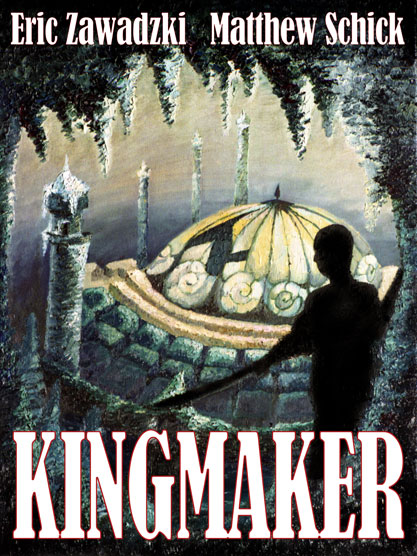 Eric & Matt: In the desert land of Turuna, every child possesses powerful magic, and only an ancient treaty prevents the clans from recruiting them as soldiers. In the tiny Ahjea clan, Butu has just had the worst day of his life. His childhood sweetheart has caught the eye of the most powerful man in Turuna. Even worse, his magic has suddenly become unreliable. Now the adults are telling him he has to stop playing with his friends and start working for the clan.
Eric & Matt: In the desert land of Turuna, every child possesses powerful magic, and only an ancient treaty prevents the clans from recruiting them as soldiers. In the tiny Ahjea clan, Butu has just had the worst day of his life. His childhood sweetheart has caught the eye of the most powerful man in Turuna. Even worse, his magic has suddenly become unreliable. Now the adults are telling him he has to stop playing with his friends and start working for the clan.
Despite his youth and small size, Butu receives and invitation to join the clan’s army, which must be more exciting than farming or mining. Excitement turns to frustration and then suspicion when Butu’s squad of young recruits is sent on a mission they can’t complete without magic. Rumor has it that a rival clan has discovered the location of Pisor, a long-lost artifact that restores childlike magic to an adult, and the true purpose of Butus mission is to find Pisor before anyone else does and bring it back to the Ahjea. By the time Butu and his squad reach Pisor, though, they won’t have any magic left to make good their escape.
Chrystalla: What gave you the idea for this book?
Eric: This one was all Matt. I just took the core premise and amplified it.
Matt: The goal was something different. We have this great, detailed magical structure to work with, and we had a child. And in most fantasy fiction, right around Butu’s age is when he’d start learning magic. The idea here is, what if that’s when he loses it? I wrote a draft with that in mind, and Eric developed it much further. What does it mean for kids to have magic? How does the culture deal with that, and the eventual loss of magic?
Butu’s always been an orphan, too. Family’s always been a big part of the story, in each and every revision. Being accepted when you’re an outsider. In Kingmaker, we put Butu in a place where he’s not the only outsider. He’s with seven other people, who all have their own stories about how they’re outsiders. And they get to grow up a little bit together.
Chrystalla: What is special about this book – what sets it apart?
Eric: Anyone familiar with the genre knows the story. Young, ordinary hero goes on adventure and learns to wield powerful magic in order to complete the seemingly impossible quest. Kingmaker deliberately sets that trope on its ear. At the beginning of the book, Butu and most of his squad have all the magic they could want, and it can solve most of their problems. As the story goes on, though, that magic grows less reliable, and they have to figure out how to make do without it. The elements of the Hero’s Journey and the impossible fantasy quest are still there, but rather than learning to use magic in order to overcome obstacles, Butu must learn to solve problems without relying on magic.
Matt: Oops, think I answered some of this one above.
Chrystalla: lol! It’s fun, I’ve never interviewed two people at the same time. Okay now, do you have a favorite scene in the book?
Eric: I’m pretty proud of a scene near the end of the book involving tiny, burrowing snakes and people buried up to their necks in sand. It’s one of those where I managed to creep myself out while writing it, and more than one reader has told me they would probably have nightmares about it.
Matt: My favorite scenes are at the beginning, when Butu’s first learning his magic isn’t trustworthy anymore. Imagine that you’ve never taken a scratch before, never scraped your knee, for the first 14 years of your life. And then it happens. It’s more surprising than painful, that’s for sure.
Chrystalla: What kind of research did you do for this story?
Eric: Even though we write not-of-this-world fantasy, I spend way too much time reading articles that might be vaguely relevant to whatever book I’m working on. For example, I read several articles about sandstorms. One article about simoom (whose name means “poison wind”) claimed that some people caught in its path would be so completely dehydrated and covered in dust by it that their bodies would look like half-buried statues. What’s more, if you touched one of these dust statues, it would just crumble away. That last bit was probably a bit of 19th Century exaggeration, but it was such a vivid image and so much in keeping with the feel of Kingmaker that I absolutely had to steal it.
Matt: I spent two spring breaks in Tucson, Ariz., hiking and horseback riding through a region most closely where Jasper is. The rest, forays into articles via the Internet. We didn’t want Turuna to be too much of a mirror of some Earthly culture, but we made sure people acted appropriately for the setting.
Chrystalla: Where can people learn more about you and your writing?
Eric & Matt: We maintain a website and blog at www.fourmoonspress.com. You can also follow us on Twitter @FourMoonsPress or on Facebook at www.facebook.com/FourMoonsPress.
Where to find Kingmaker:
Chrystalla: Thank you so much for stopping over. Your book sounds fascinating and I can’t wait to read it. I wish you lots of success in your endeavors!
Guest author interview: Craig Hansen
Chrys: Hi, Craig, and welcome to my blog! Why don’t you tell us a few words about yourself first?
Craig: Well, I had my first fiction short story published when I was around age fourteen and I’ve been serious about my writing ever since. I got distracted into journalism and some day-jobs that didn’t quite fit for several years after college, but now I’m back to pouring a lot of my creative energy into writing.
Chrys: What genre(s) do you write and why?
Craig: Right now, I’m concentrating mostly on paranormal suspense aimed at the young adult market. I’m focusing my efforts there because right now I enjoy writing about the high school experience. As for paranormal, I recognize it’s a hot genre right now and I’ve read this sort of thing since I was a young kid. I choose to attach suspense to the paranormal label because my main character, Ember, hasn’t found her first love yet at this point in her journey, so the emphasis is more on edge-of-your-seat paranormal thrills and the adventures she goes through. She’ll discover boys eventually, but she’s not there yet, so I can’t honestly call it paranormal romance. Plus, none of the boys she’ll be infatuated with are vampires or anything like it, so again, I wanted a label that reflected the book’s actual content. Therefore, SHADA is YA paranormal suspense.
Chrys: What can you tell us about your writing projects and recent releases?
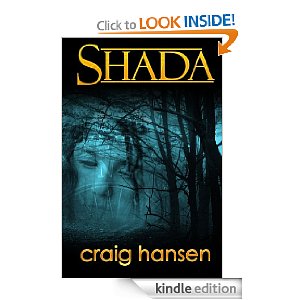 Craig: My first novel, MOST LIKELY, was young adult as well, but focused strictly on coming of age with no paranormal themes, although there were some mild Christian themes. It takes place in Hope, Wisconsin, my fictional setting, and also the same high school that Ember Cole will attend. So characters who appeared in MOST LIKELY could pop up again in SHADA, EMBER and other books I have in the works.
Craig: My first novel, MOST LIKELY, was young adult as well, but focused strictly on coming of age with no paranormal themes, although there were some mild Christian themes. It takes place in Hope, Wisconsin, my fictional setting, and also the same high school that Ember Cole will attend. So characters who appeared in MOST LIKELY could pop up again in SHADA, EMBER and other books I have in the works.
SHADA is my first release, a YA paranormal suspense novella that kicks off the Ember Cole series. It’s a fun adventure, but also a haunting tale of friendship.
EMBER will be my next release, and picks up a few weeks after the events of SHADA.
Chrys: Tell us about your latest release.
Craig: Here’s how one reviewer summarized SHADA:
“SHADA was an absorbing read about friendship, letting our friends make decisions for us and then having to deal with the fallout. Shada and her three friends—the strong-willed Jeni, the melancholy Ember, and science nerd Willow—are close and Jeni invites them to a sleepover in the woods for a séance. Jeni lives on reservation lands, and when the girls trudge out to the camp site, they soon learn about the history of the place. Shada, like Jeni, is Native American, and understands Jeni when she speaks in Lakota, really putting on a show for her friends. But when a cool breeze starts up and twigs begin snapping in response to questions, the girls have to wonder what is really going on. The story had an endearing charm about it—a combination of the feel of old-fashioned ghost stories combined with the complexities of modern day friendship in a technological age. The girls were not the usual norm, they were unique individuals and I especially enjoyed their camaraderie. Holding a séance on ancient burial grounds was incredibly spooky and Craig Hansen skillfully crafted these chilly scenes. SHADA asks the question of what happens when fake becomes true.” (Excerpted from a ReaderGirls.com review)
Chrys: What gave you the idea for this book?
Craig: Several things. I had some parallel real-life experiences, including a grandmother who lived across the street from us, had a boyfriend we called grandpa, and who suffered from Alzheimer’s and dementia. I also took part in a makeshift séance once as a kid when I was too young to know what I was doing. There were some other parallels, but I won’t share any that are spoilers here.
So, yes, I drew on a lot of life experience, and juiced it up just a little, made it their experience instead of my own. So the story came together well, I think. I needed a shorter book I could introduce the Ember Cole series with, and this story turned out to be a shorter, less complex plot than EMBER, while still being a complete story. So I released this one first, rather than releasing EMBER first and then, later on, telling this story as a “prequel” or something.
Chrys: What is special about this book – what sets it apart?
Craig: I have a special place in my heart for the Stephen King novella, “The Body,” which became the movie STAND BY ME. It had four iconic young boys and told a wonderful tale about growing up. I wanted to write a story like that, with that kind of heart, that would instead feature a female cast and maybe become, someday, that kind of story for girls.
Chrys: Do you have a favorite scene in the book?
Craig: Several. If I have to single out one scene, I guess one I can talk about here without critical spoilers is the dinner table scene between Shada Emery and her parents. It has some great family humor, at least one twist I would hope is unexpected, and really helps define our narrator, Shada, a little better.
Chrys: What kind of research did you do for this story?
Craig: To capture the flavor of northwestern Wisconsin, I knew I wanted to include some characters who were Native Americans. I suppose I could have been lazy about it and made them “modern” tribal youngsters completely out of touch with their own culture, but I didn’t want to go that way.
So I researched the Lakota language so that I could allow Jeni, and sometimes Shada, to speak in their own language from time to time, as multi-lingual people sometimes do.
And I didn’t want to be limited to just one or two pet phrases, so I found a couple different sources that were Lakota dictionaries, and did my best to construct some genuine Lakota dialog throughout SHADA. That being said, I’m still nervous about it. Any day now I expect to hear from a reader fluent in Lakota who will take me to task and tell me my characters speak worse Lakota than a five-year-old. But, I’ve done everything I can to avoid that.
Once I decided to include Sacagawega, I also had to do some research on the Shoshoni language. I did this because one of the things that always seems to be a bit fake about novels with séances in them is that all the ghosts called forward speak perfect modern English… maybe with an accent. It seems to me people who died long ago would speak the same languages they knew in life, more or less. So I researched some Shoshoni phrases as well.
Chrys: Where can people learn more about you and your writing?
Craig: My author’s blog is a good place to start. It’s located at Craig-Hansen.com. I also hang out at Kindeboards, Facebook and on Twitter. And my books can be found on Amazon, Barnes and Noble, Smashwords, and in the iBookstore (through Smashwords distribution). Basically, “wherever fine ebook are sold,” as they say.
Thank you for this chance to chat!
Find Craig’s novel at:
Guest interview: Author Michael Meyer
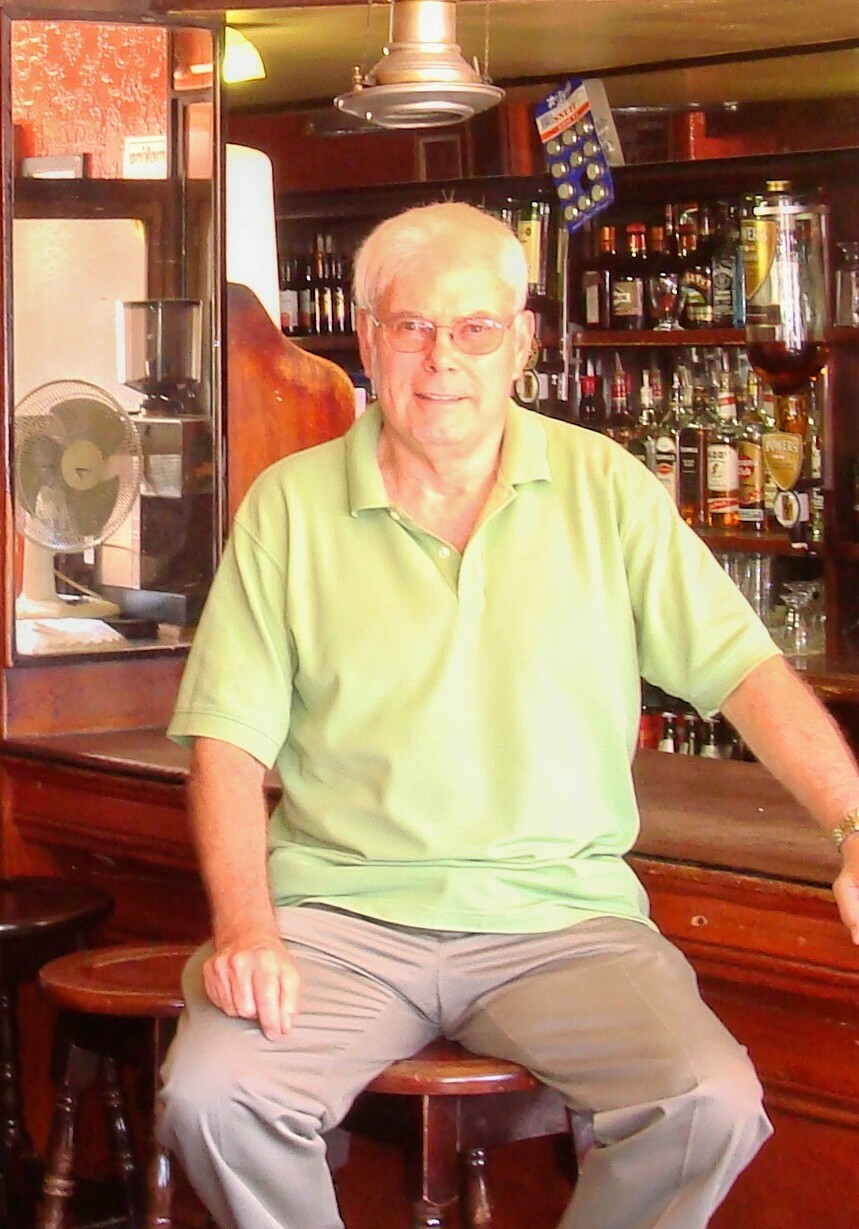 Today my guest is author Michael Meyer. Drawing on his personal experiences in the academia, he writes funny, contemporary stories.
Today my guest is author Michael Meyer. Drawing on his personal experiences in the academia, he writes funny, contemporary stories.
Chrystalla: Hi dear Michael and welcome to my blog! Why don’t you tell us a few words about yourself first?
Michael: I retired in December 2010 from a 40-year career as a college writing professor. I literally studied and taught at universities throughout the world, Finland, Germany, Thailand, Saudi Arabia, the US Virgin Islands, and I spent the last 24 years at a California community college. I am an avid world traveler, and I live in Southern California wine country with my wife, Kitty, and our two other cats.
Chrystalla: You’ve had an exciting life! It makes perfect sense that you want to put so many experiences in your books. What genre(s) do you write and why?
Michael: I have published two humorous short novels, both of which have an underlying seriousness to them. I think laughter is healthy, and I want my readers to be able to see humor in even non-humorous situations. Laughter is good for both the body and the soul.
Chrystalla: What can you tell us about your writing projects and recent releases?
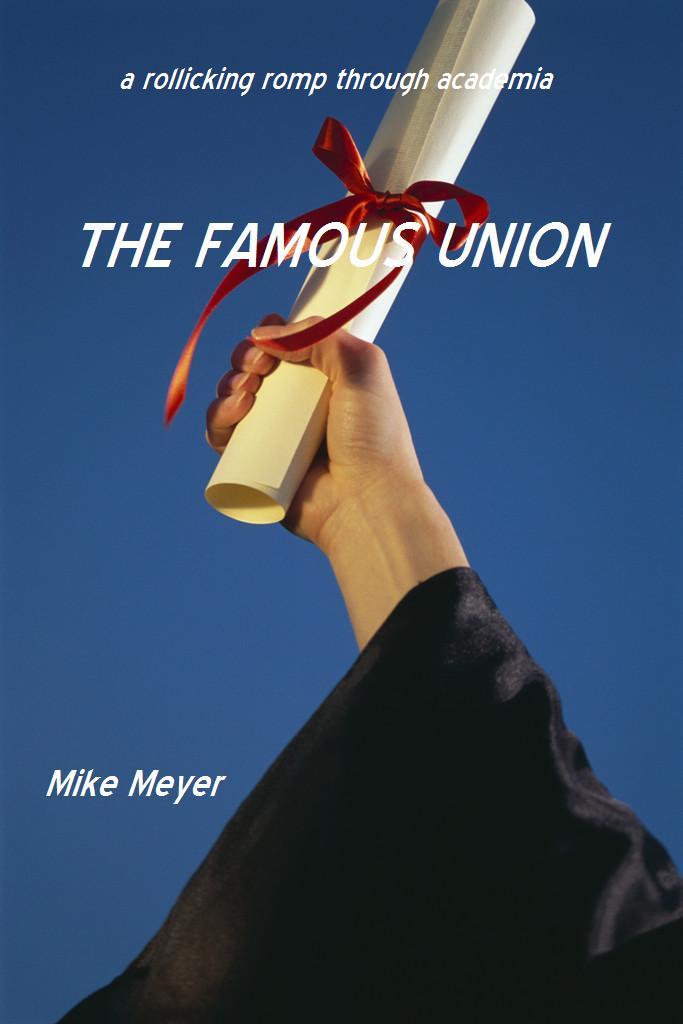 Michael: THE FAMOUS UNION is a rollicking romp through the halls of academia, where the decisions of the powers-that-be have created chaos amid a time of severe financial turmoil. THE SURVIVAL OF MARVIN BAINES is a whimsical look at a man’s coping with midlife.
Michael: THE FAMOUS UNION is a rollicking romp through the halls of academia, where the decisions of the powers-that-be have created chaos amid a time of severe financial turmoil. THE SURVIVAL OF MARVIN BAINES is a whimsical look at a man’s coping with midlife.
Chrystalla: Give us a small excerpt to see what your stories are like!
Michael: Here is the opening scene of THE FAMOUS UNION:
Famous Union was a pretty college, with pretty buildings and pretty coeds and a lot of trees. It also had a pretty water fountain that ran from eight in the morning until five in the evening, excluding Saturdays and Sundays. It was a small college but with not small problems and expenditures. The water fountain alone had cost a mint, not to mention the artificial turf on the football stadium, the bowling alley in the student union, and the many automatic coffee makers around campus.
On September 1, 2012, two recent PhD’s entered employment with the English Department of Famous Union College, one a young Greek, the second a younger hybrid. But unfortunately for the latter—the hybrid—who had been hired to coordinate the department’s freshman composition program, a two-semester sequence, the entire program, as the result of an executive decision in late August, was abolished forever at Famous Union three weeks before the new coordinator showed his face in town for the second time, the first having been for his job interview two and a half months earlier. The decision was a landmark one, Famous Union having been the first and only institution of higher learning in the entire country to disband the writing program that was a strict requirement everywhere else under the American flag, and always had been.
Chrystalla: I can imagine that you drew on personal experience for this story. What inspired you to write it?
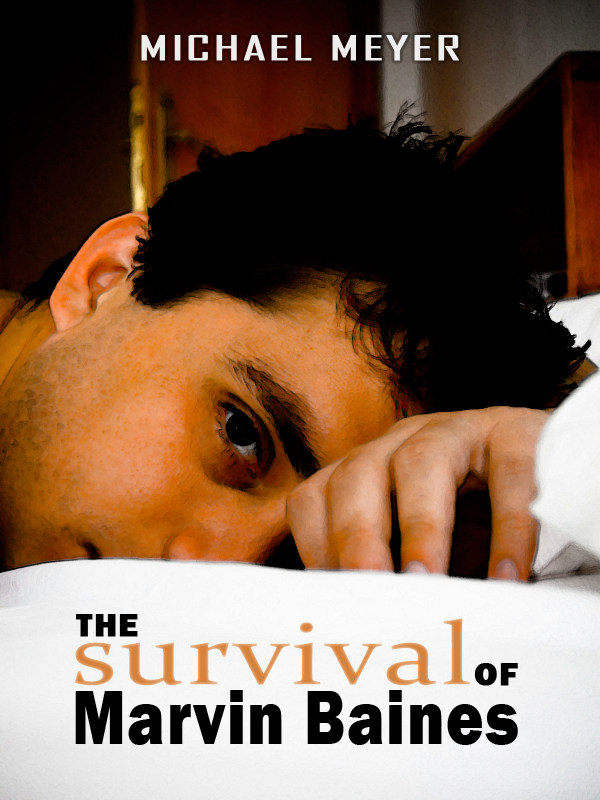 Michael: I spent 40 years as a college professor and I have seen every personality eccentricity and quirk imaginable. In addition, I wanted to bring humor to the terrible global economic plight of today by highlighting the absurdity that often reigns, even in such a prestigious place as an institution of higher learning.
Michael: I spent 40 years as a college professor and I have seen every personality eccentricity and quirk imaginable. In addition, I wanted to bring humor to the terrible global economic plight of today by highlighting the absurdity that often reigns, even in such a prestigious place as an institution of higher learning.
Chrystalla: Excellent. What is special about this book – what sets it apart?
Michael: One reader said in her review that the characters would make a good case study for a psych course. I like that. It made me smile.
Chrystalla: 🙂 Do you have a favorite scene in the book?
Michael: Probably the very ending, where the absurdity of it all is reinforced with a comical finality.
Chrystalla: What kind of research did you do for this story?
Michael: I observed my colleagues, administrators, and students for years and years. Bits and pieces of people I have known and situations I have observed have made their way into THE FAMOUS UNION.
Chrystalla: Thank you for being here, Michael. Where can people learn more about you and your writing?
Michael: You can find me on my Amazon Kindle website
Link to THE FAMOUS UNION:
Link to THE SURVIVAL OF MARVIN BAINES:
How to escape your body: a new anthology
Corpus Pretereo – I escape the body.
That’s the name of a new anthology coming out on the 10th of October, featuring stories with this theme – including my story Dreamdancer. 🙂
The races of fantasy as described by Tolkien and his followers – the elves, the dwarves, the orcs etc – have been overused and I tried to give a new twist with Dreamdancer. Dreamdancers are a race related to the elves, who can manipulate their dreams and invite others inside.
Here is what the story is about:
Dreamdancer Aivar has fled the devastation of his homeland and must whore his dreams out to humans to scrape by day to day. To save a sick friend from death, he pretends to posses a higher level of dream control. But when this deception causes a vicious customer to wound him, only an old love of his, a High Elite kinswoman, can save him. However, the price may be more than he is willing to pay.
The other stories in the anthology sound great too and I can’t wait to get the book. It will come out in electronic format, and the cover is truly amazing:
Guest author Talia Jager
YA author Talia Jager is talking today about her novels, including her most recent release, vampire novel “Secret Bloodline”.
Chrystalla: Hi and welcome to my blog! Why don’t you tell us a few words about yourself first?
Talia: I’m a young adult author, wife, mother of five girls with another surprise on the way.
Chrystalla: What genre(s) do you write and why?
Talia: I’ve always read YA, maybe that’s why I write it. The teen mind is awesome. I love that it’s usually raw and passionate. One reason I enjoy writing YA is it’s filled with ‘firsts’. First love, first high school experience, first kiss, first experimentation with… (a number of different things).
Chrystalla: What can you tell us about your writing projects and recent releases?
Talia: I have five books for sale. Three are YA dramas that required a lot of research. After those three were released, I wanted to try something a little different and wrote two YA paranormals. I still consider them dramas, but with a paranormal aspect.
Chrystalla: Tell us about your latest release.
Talia: That would be my novel “Secret Bloodline”. What sixteen-year-old Kairi doesn’t know is that vampires do exist and she’s one of them. She was left in foster care when she was very little and grew up away from her world. Then she began to change. Feeling out of place and confused, she ran away from her foster home. A coven takes her under their wings and trains her. When she is told her parents didn’t just abandon her, but died protecting her, she sets off on a mission to find their killer.
And then she meets Aiden…a vampire hunter.
Chrystalla: What gave you the idea for this book?
Talia: My husband thought I should write a vampire book while they were still ‘hot’. After thinking long and hard, I came up with my own take on vampires.
Chrystalla: What is special about this book – what sets it apart?
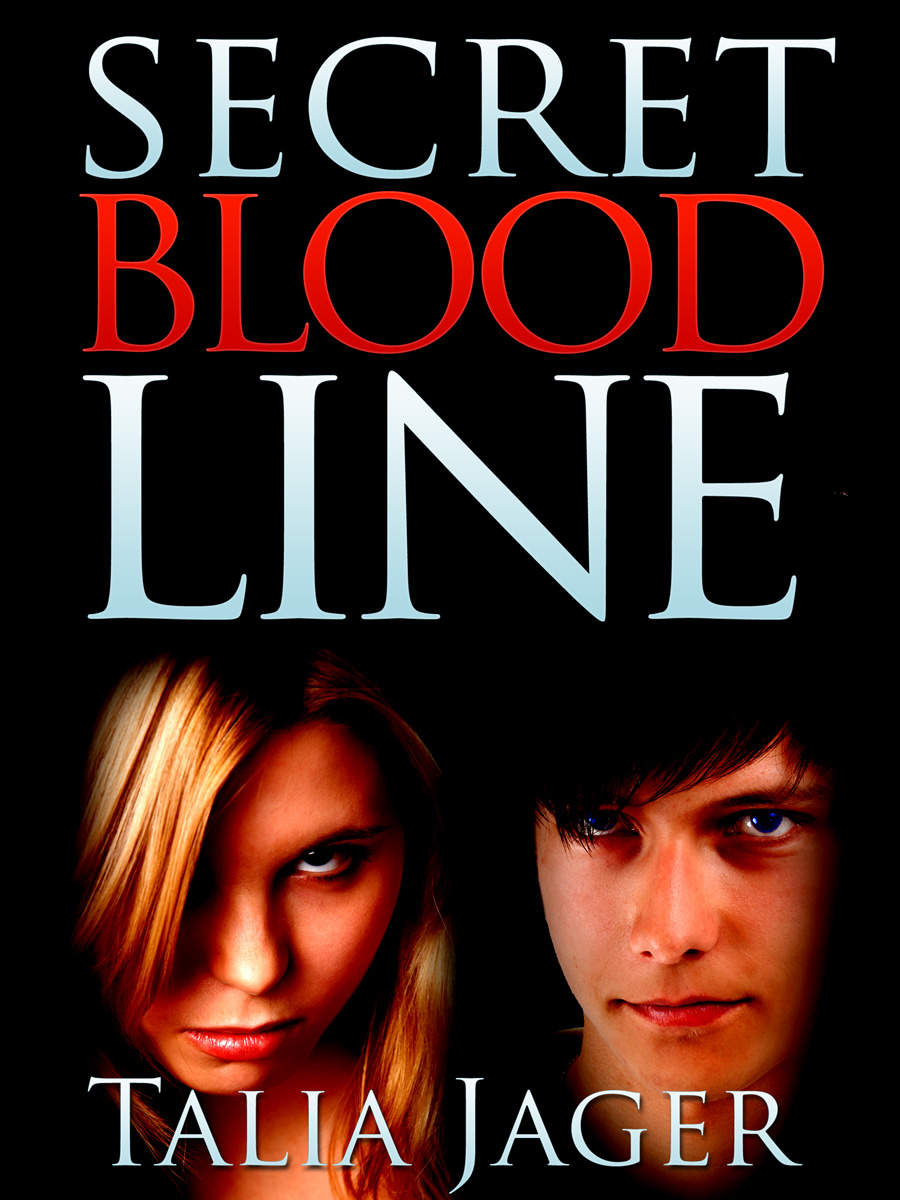 Talia: There are so many vampire and paranormal romance books out there, it’s hard to write anything different. I tried and hope I succeeded. Secret Bloodline is about a girl who has no idea that she was born a vampire. She goes from being a nobody to being important. When she falls for a vampire hunter, her world gets turned upside down. But, I think it’s the twists and turns that come after that set it apart even more.
Talia: There are so many vampire and paranormal romance books out there, it’s hard to write anything different. I tried and hope I succeeded. Secret Bloodline is about a girl who has no idea that she was born a vampire. She goes from being a nobody to being important. When she falls for a vampire hunter, her world gets turned upside down. But, I think it’s the twists and turns that come after that set it apart even more.
Chrystalla: Do you have a favorite scene in the book?
Talia: I have many, but talking about them would give away too much of the book. I will tell you that I love when Kairi finds out she has a family who has been looking out for her and I also love the tension between Kairi and Aiden.
Chrystalla: What kind of research did you do for this story?
Talia: Unlike my first three books, I didn’t do much research for Secret Bloodline. I just used my imagination and created the world I wanted my characters to live in.
Chrystalla: Where can people learn more about you and your writing?
Talia: I love hearing from fans. I can be reached at taliajager (at) att (dot) net
Guest Author: Andy Rane
Today my guest is author Andy Rane who agreed to answer the same six questions he has been asking his own guests for a while now… Enjoy! 🙂
Chrystalla: Welcome, Andy. Tell us a few things about yourself!
Andy: I live in NJ (yes, by choice) with my wife, young son, a couple cats, two chinchillas, some fish, and a salamander named Fred. When I’m not writing or promoting my book, I’m usually reading or playing games with my son. Until my books catch fire (figuratively, not literally), my day job consists of editing pharmaceutical advertising. So, now…about those six questions I’m always having others answer. 😉
Chrystalla: Have you published a book yet?
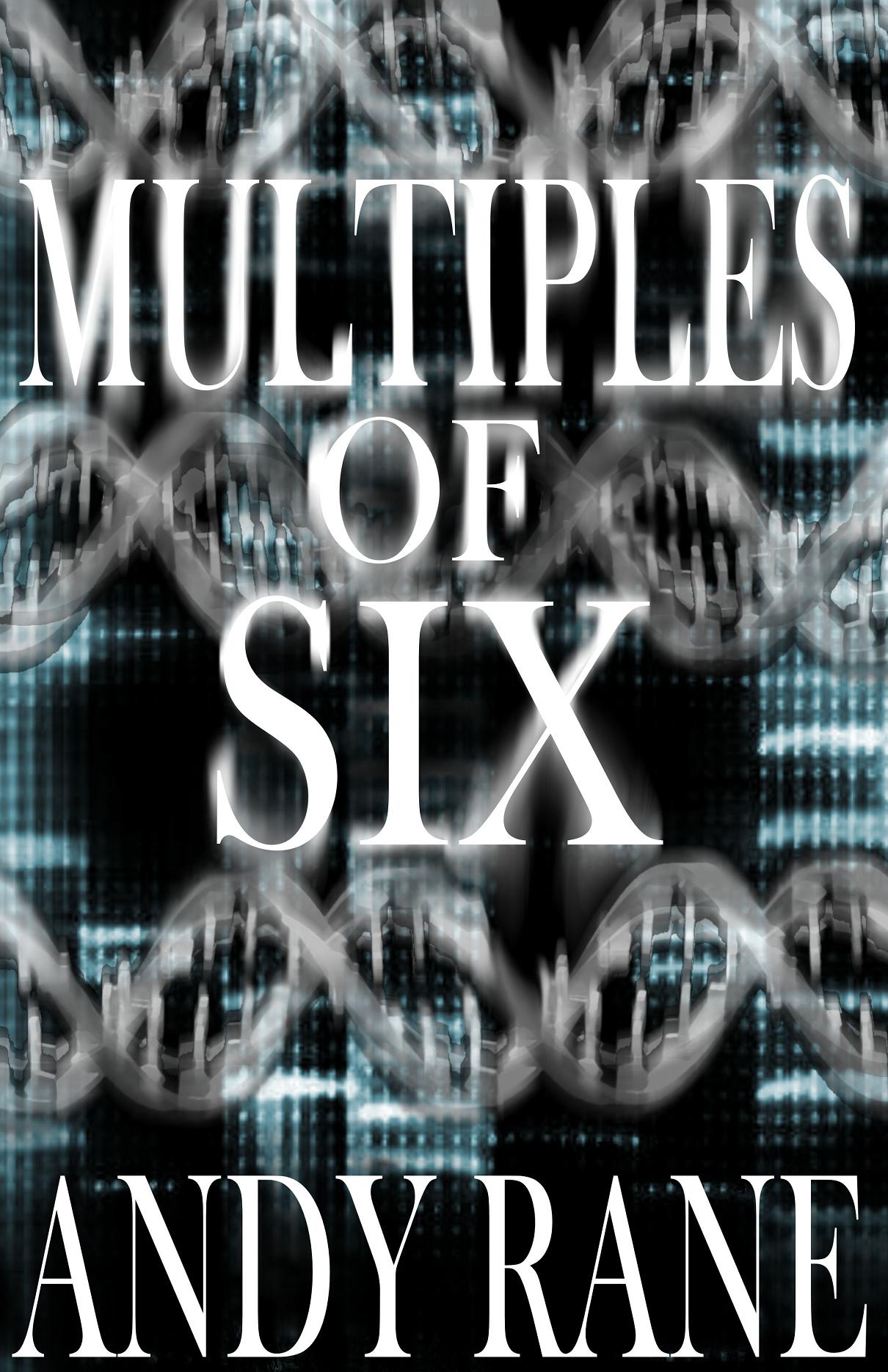 Andy: I self-published my first novel, Multiples of Six, on July 18, 2011 under my pen name, Andy Rane (you can visit my Web site to find out my real name). Written over the course of 5 years, I did quite a bit of research before finally deciding to self-publish. Here’s a little synopsis: James Masterson is simply taking a moment to reflect on his back porch, when a metal barrel is pressed against his head. His assailant is frightened by what he sees and when James turns around, he begins to understand why. He’s staring at his identical twin…a brother he never knew he had. Brought together by a mysterious doctor neither young man has met, James sets out to find out the truth about a past that unravels more and more at every turn. He can trust no one and must risk everything to discover the family he never knew he had. Multiples of Six is ~70,000 words and is the first book in a trilogy. It’s available for Kindle, Nook, iPad and more for just $2.99. The paperback is also available through Amazon and Barnes & Noble. Keep an eye out for the sequel, Divisible by Six, in early 2012. For a sample chapter, check out my blog (https://bitly.com/rpSzH1).
Andy: I self-published my first novel, Multiples of Six, on July 18, 2011 under my pen name, Andy Rane (you can visit my Web site to find out my real name). Written over the course of 5 years, I did quite a bit of research before finally deciding to self-publish. Here’s a little synopsis: James Masterson is simply taking a moment to reflect on his back porch, when a metal barrel is pressed against his head. His assailant is frightened by what he sees and when James turns around, he begins to understand why. He’s staring at his identical twin…a brother he never knew he had. Brought together by a mysterious doctor neither young man has met, James sets out to find out the truth about a past that unravels more and more at every turn. He can trust no one and must risk everything to discover the family he never knew he had. Multiples of Six is ~70,000 words and is the first book in a trilogy. It’s available for Kindle, Nook, iPad and more for just $2.99. The paperback is also available through Amazon and Barnes & Noble. Keep an eye out for the sequel, Divisible by Six, in early 2012. For a sample chapter, check out my blog (https://bitly.com/rpSzH1).
Chrystalla: When did you know you wanted to be a writer?
Andy: When I was 19, I had some trouble with college. Let’s just say I was never cut out to be a Chemistry major. My mother actually recognized my talent for putting words on the page and suggested that I turn my energies to writing. So, I did. I started with poetry and eventually returned to college, making my way to The Richard Stockton College of NJ as a Literature major. There, I had the great pleasure of studying under the future Pulitzer-Prize winning poet, Stephen Dunn. Though I wrote prolific amounts of poetry, I eventually found that prose was my true love.
Chrystalla: What was your first lengthy piece of fiction (say, >1000 words)? What was it about? When did you write it? Do you still have it?
Andy: When I was a freshman in high school I started writing a “book.” It was essentially “Red Dawn (the movie) Comes to My Home Town and I Escape to Find This Really Cool Helicopter at the Local Army Base and Teach Myself How to Fly It.” Yeah, it was pretty bad. I think it’s still floating around somewhere. Handwritten of course, in an old school notebook. I miss scratching out prose on paper…sometimes.
Chrystalla: When was your first indication, “I can do this (write)”?
Andy: I took many creative writing courses during my college years. I had several people tell me that they thought I was talented, but there’s one instance that stands out. In 2005, I spent an ill-fated semester in a nontraditional MFA program (yeah, me and college have had a bit of a love/hate relationship). Anyway, during the residency, I had one of the professors (a published author himself) introduce himself to me by saying, “So, the others (other professors) tell me you might actually make some money from this someday.” Yeah, that was cool and it was my first true indication that I might be on the right track.
Chrystalla: If you could meet one of your characters in real life, which would it be?
Andy: The character of Uncle Ted doesn’t play a very large role in Multiples, but he’s a larger than life character. He’s a no-nonsense hulk of a man who knows a thing or two about the realities of life, but won’t blow smoke up your rear when he tells you about it. He knows how respect is earned and he knows it takes more than brawn to make a man.
Chrystalla: It’s a dark and stormy night…you’re alone in the house…there’s a knock at the door…you open it, look out, and proceed to scream like a little girl. What’s on the doorstep?
Andy: Darkness and nothing…and then the soft bodyless whisper of my name. Eeeeee!
Stop by and visit Andy’s blog or Andy’s Website
He hosts a new indie author twice a week and subjects them to the tortures of answering The Same Six Questions. He also occasionally posts about his experiences in the world of self-pubbing.
You can also hunt him down on Facebook and Twitter.
Here’s where you can find his book!
Guest Author Kim Jewell
Today my guest is Kim Jewell, published author of Young Adult fiction including Invisible Justice, Brute Justice and Misery’s Fire.
Chrystalla: Hi dear Kim and welcome to my blog! Why don’t you tell us a few words about yourself first?
Kim: Hello, and thanks for having me! My name is Kim Jewell and I’m a wife, mother, step-mother, marketing executive, animal lover (three dogs and one very naughty cat!), and if that’s not enough to make me crazy… I’m also a new author!
Chrystalla: Why do you write?
Kim: I’ve always written in my career – I’m in marketing and public relations, so my writing was pretty much ad copy, press releases, newsletters, website copy… It was always a dream of mine to turn to fiction writing, but I just never knew how or where to start. And I was waiting for the right storyline to inspire me.
I took a break from marketing several years ago, went to work for my best friend to help her manage her dental practice. I stayed with her for three years before the law firm I’m working at now called and requested an interview with me. Once I started working here, I got back into the swing of writing again, and my creative juices started flowing. I had forgotten how much I missed it! I dreamt the storyline for Invisible Justice shortly after I got back into marketing (apparently my creativity doesn’t stop even when I’m sleeping!) and started writing pretty much the next day. It was completed in less than three months.
Chrystalla: What inspires you?
Kim: I was told once by a fellow writer/friend that my “voice” was very similar to Alice Sebold (The Lovely Bones, The Almost Moon). Did she influence me? No, I read her work after I started writing, but I did pick up both of those books just to study her voice and delivery. She’s incredible, very powerful writing.
I’d say I’m probably more inspired by the stories and authors of YA writing – I love the creative plotlines and the sheer entertainment of being swept into a story so imaginative and beyond anything our every day mundane reality could provide. I adore both the Harry Potter and Hunger Games series, and our bookshelves are lined with all kinds of YA books and series – Percy Jackson, Eragon, Lord of the Rings, Twilight, Artemis Fowl, and more. I had a reviewer compare my work to James Patterson’s Maximum Ride series, so I guess the reading I’ve been doing in this genre is paying off!
Chrystalla: What genre(s) do you write and why?
Kim: So far all I’ve completed is in the young adult arena – it’s a genre that our entire family has always enjoyed, both in literature and in movies. When the boys were young, I read the Harry Potter novels to them before bedtime, and I remember standing in line waiting to see the first movie with them. True story – the first HP movie came out the same day we closed on our house. We told the title company to hurry up the process because we had movie tickets that were more important! Our entire family has always been fascinated by the creativity in YA literature, so this feels the most natural for me and my voice.
Chrystalla: What can you tell us about your writing projects and recent releases?
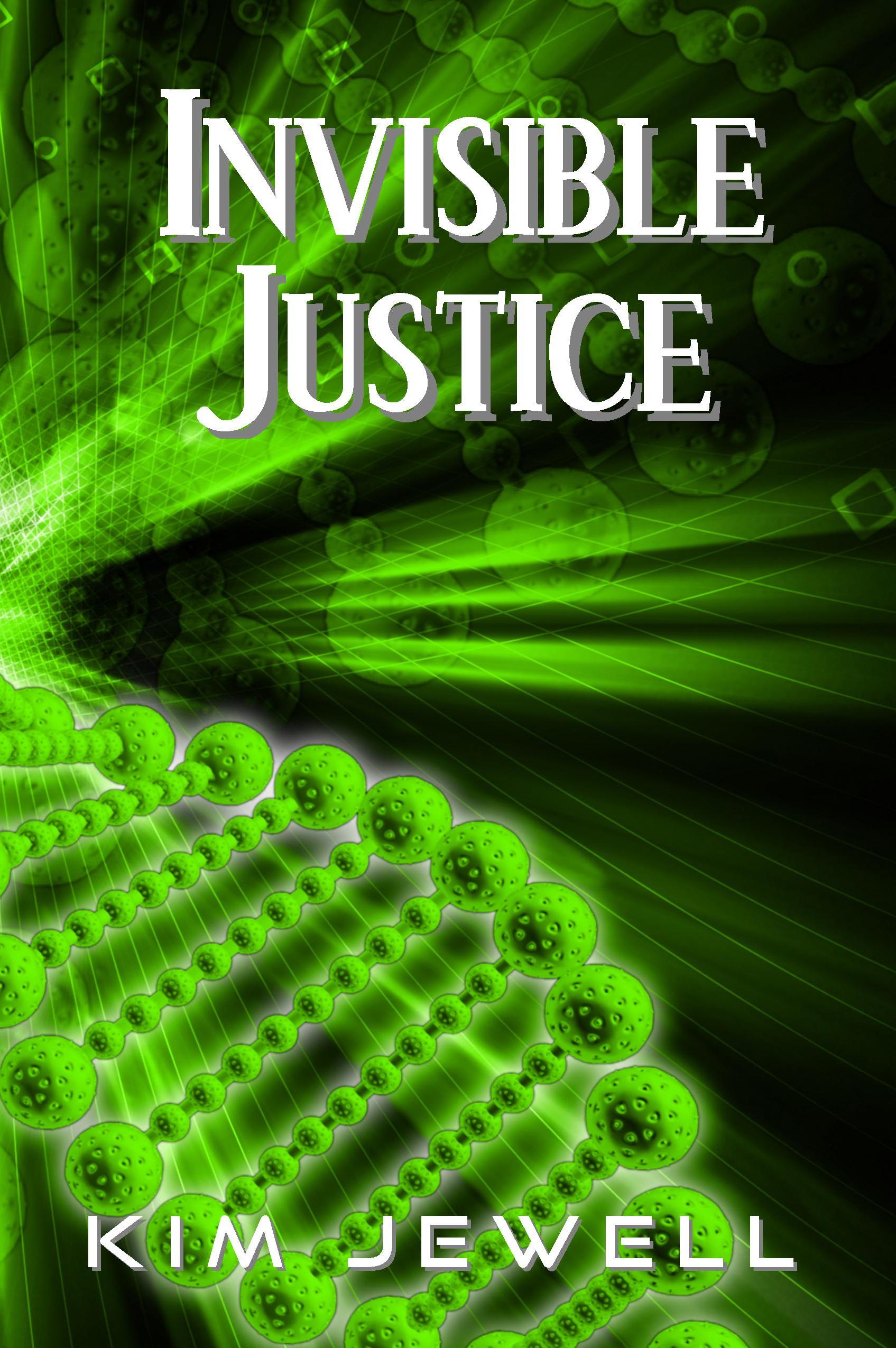 Kim: Invisible Justice is told from the perspective of Sam Dixon, a fairly typical 16-year old, at least until he starts to experience random bouts of burning fire sensation that spreads throughout his entire body. The flashes don’t last long, but they’re excruciating. They also leave him with heightened senses – he can see farther (and in the dark!), hear things blocks away, smell the faintest of chemicals in the water… The powers come and go just as the flashes of pain do, but each time they last a little longer, and eventually strengthen and manifest into other abilities. When the flashes are done, the powers stay for good.
Kim: Invisible Justice is told from the perspective of Sam Dixon, a fairly typical 16-year old, at least until he starts to experience random bouts of burning fire sensation that spreads throughout his entire body. The flashes don’t last long, but they’re excruciating. They also leave him with heightened senses – he can see farther (and in the dark!), hear things blocks away, smell the faintest of chemicals in the water… The powers come and go just as the flashes of pain do, but each time they last a little longer, and eventually strengthen and manifest into other abilities. When the flashes are done, the powers stay for good.
A random meeting connects him with Leesha Conway, another teenager who has already gone through the flashes, and is left with the power of telekinesis. She can lift and move pretty much anything, people included, with just the power of her mind. They team up to find out what is happening to them and who is responsible. Along the way, they find two more teenagers who have been affected and the team works desperately to track down the doctor responsible for the genetic manipulation. He’s not entirely honorable, though, and will stop at nothing to control the teens once they’ve started realizing their powers.
 Brute Justice picks up where IJ left off, the evil doctor is still in hiding, and they finally find him and start tracking him like he’s been watching them. The four teens start gathering intel on him, waiting for the right opportunity to approach him for questioning. They track down another teen named Jade, but the mystery about her is that she has been through the flashes, but hasn’t realized a power of any kind. They also find yet another teen toward the end, and without giving up too many details, this character adds a very interesting dynamic to this book and for the other books to come.
Brute Justice picks up where IJ left off, the evil doctor is still in hiding, and they finally find him and start tracking him like he’s been watching them. The four teens start gathering intel on him, waiting for the right opportunity to approach him for questioning. They track down another teen named Jade, but the mystery about her is that she has been through the flashes, but hasn’t realized a power of any kind. They also find yet another teen toward the end, and without giving up too many details, this character adds a very interesting dynamic to this book and for the other books to come.
Chrystalla: Tell us about your latest release (could include blurb, small excerpt like 200 words).
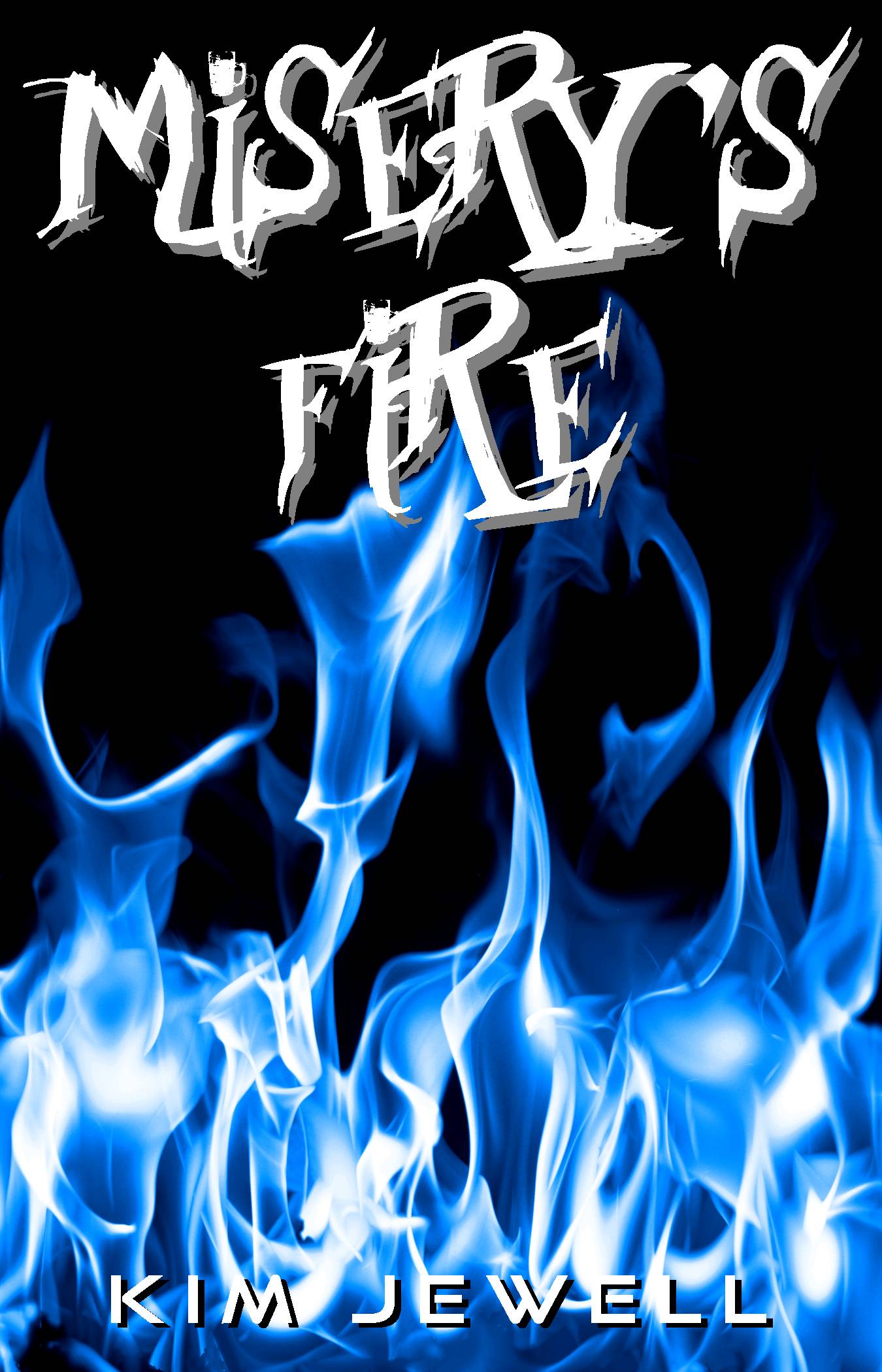 Kim: Misery’s Fire is a story about a nineteen-year-old (Grant) who gets killed when he tries to avenge his sister’s (Misery is her name) murder. He wakes up in hell with a caseworker named Angelo whose only purpose is to make Grant as miserable as possible. When he can’t break his spirit, he hastily resorts to a punishment from a flip comment Grant makes about nothing being worse than high school. So he sends him back to the fiery pits of cliques, chicks and acne.
Kim: Misery’s Fire is a story about a nineteen-year-old (Grant) who gets killed when he tries to avenge his sister’s (Misery is her name) murder. He wakes up in hell with a caseworker named Angelo whose only purpose is to make Grant as miserable as possible. When he can’t break his spirit, he hastily resorts to a punishment from a flip comment Grant makes about nothing being worse than high school. So he sends him back to the fiery pits of cliques, chicks and acne.
Grant gets plopped down in this fancy private school (polar opposite of his former impoverished life) with nothing but the clothes on his back and a bag full of freshman books. New body, new face, no one to turn to for help. So he is forced to learn how to survive, and make choices based on his new sense of right and wrong. Angelo plays his part, throwing evil temptations at him, and Misery has some divine intervention as well.
Chrystalla: What gave you the idea for this book?
Kim: Misery’s Fire was a dream my husband had. He was so excited to tell me the idea for my next book, and then couldn’t find the right words to explain it to me. He ended up sitting down at his laptop, and 750 words later had written the outline for me. His piece was so compelling, I first told him he should write the book. He declined, and nudged it back my way. “You’re the writer, not me,” he said. Then I tried to use his words as a prologue to set the story up. After a lot of reader feedback, I finally conceded to taking out the prologue, but his ideas, and much of his writing is woven throughout the story.
Chrystalla: What is special about this book – what sets it apart?
Kim: This one’s a lot darker, edgier – still YA, but it definitely skews to the older teens. It covers some heavy topics like gangs, crime, drugs, bullying, and also family loyalty, redemption and faith. My initial goal when I first started writing was to create entertaining stories that would appeal to teenagers, but would also appeal to their parents as well. I wanted to cover some heavy topics that are affecting teens today, and really open up lines of communication between parents and their kids. This one’s the one to read with your teen if you struggle getting them to open up about tough issues.
Chrystalla: Do you have a favorite scene in the book?
Kim: The scenes between the main character (Grant) and his sister (Misery) are my favorites – at least the happy ones. The last scene, where they say goodbye, made me cry when I wrote it. (Yep, I’m a total sap!)
Chrystalla: What kind of research did you do for this story?
Kim: I did tons of research while writing this book, but I like the research process, so it was kind of fun for me. I read up on everything from drugs and gangs, to how to start a motorcycle, to different kinds of temporary tattoos. I’ve also got a friend whose husband is a police officer, so I bounced a lot of fact-finding questions off of her as well. Oh yeah, and I had to pull out the old anatomy materials and dust off my knowledge of dissection from high school!
Chrystalla: What is the hardest part about being a writer? How do you get past it?
Kim: The hardest part for me is simply finding the time to write. I’ve got a full-time job (which I love) and a full-time family (whom I adore), so I cram my writing time into my lunch hour. (It’s pretty much the only hour I get truly to myself.) I wouldn’t change anything about my life, but there are days when I wish I could cram about eight more hours into my lunch hour!
Chrystalla: What can we look forward to next from you?
Kim: Right now I’m working on a sci-fi novel entitled After the Pulse, which explores life after Earth has been hit by an electromagnetic pulse. This one was a storyline that came from one of my husband’s dreams, and I swear it was right after he watched the movie Zombieland. (He loves that movie.) So it explores what happens when the electrical grid has been disabled by the pulse and people are no longer able to rely on cars, computers, telephones, television – you name it, it’s been zapped. Oh, and there are some random zombies and other crazies thrown in. It’s a sci-fi/horror that is told from the eyes of a sixteen-year-old. It’s suitable for YA, but should appeal to all sci-fi lovers.
I’ve also started a silly little middle-grade romance novel in which a sasquatch girl falls in love with a teenage boy. The twist – the sasquatch population is much more highly evolved than the human race, and they feel far superior to humans. It’s their higher intelligence and advanced technology which enables them to blend in with society when absolutely necessary, but also helps them evade our wandering and ever-curious scientist explorers looking for proof of Bigfoot existence. Imagine her family’s dismay when they find out Flora has a crush on a filthy human! Oh the horror! It’s called Sasquatchattraction, and I’ll eventually pull it from the shelf, dust it off and finish it, but…
Right now my readers are asking for the next book in the Justice Series, so after I’ve sent my current WIP to my beta readers and editors, I’ll get back to that series. Flora’s budding romance will have to wait a bit longer, I’m afraid.
Chrystalla: Where can people learn more about you and your writing?
Kim: My blog is the best place to start – www.kimjewell.wordpress.com
Where to find Kim Jewell:
Kim: My blog: www.kimjewell.wordpress.com
My Twitter handle: @kimjewell
My Facebook profile: http://www.facebook.com/kim.jewell
My Facebook fan page for Invisible Justice: http://www.facebook.com/kim.jewell#!/pages/Invisible-Justice/221641074526221
My LinkedIn profile: http://www.linkedin.com/profile/edit?trk=hb_tab_pro_top
Kim’s book links:
Invisible Justice
Brute Justice
Misery’s Fire
Guest Author David North-Martino
David North-Martino, martial arts instructor and published fiction author, has kindly agreed to talk today about himself and his stories. 🙂
Chrystalla: Hi dear David and welcome to my blog! Why don’t you tell us a few words about yourself first?
Dave: Hi Chrystalla! Thanks for the opportunity.
I’m a Massachusetts-based writer. I live with my wonderfully supportive wife in a small town that borders on the state of Rhode Island.
I worked for a decade in the criminal justice field in the private security industry as a manager and a human resources recruiter. After it was downsized, I went back to get my degree in English and psychology from the University of Massachusetts. Now that I have my degree, I’m making a go at writing full-time.
My first published short story won the 2nd annual $500.00 Déjà vu Horror Fiction Contest at Dark Recesses Press and appeared in their 4th issue. My short fiction has also appeared in Afterburn SF, The Swamp, and most recently, as you know, in the anthology: Extinct Doesn’t Mean Forever. I also have a story slated to appear in Epitaphs, the inaugural anthology of the New England Horror Writers (NEHW) coming up in November.
When I’m not writing I love to study and teach martial arts.
Chrystalla: Martial arts, wow… I bet your fight scenes must be described in wonderful detail! Okay, brace yourself for this question: Why do you write?
Dave: I don’t think I have much of a choice! When I don’t write for an extended period of time I feel like something’s missing in my life. There’s an emptiness that must be filled, writing is the only thing that will do it. When I was a teenager, if I wasn’t writing fiction, I was filling journal pages with reflections, anecdotes, and bad poetry.
When it comes to writing fiction, I think I’m working out my inner demons. It’s like therapy. I feel “lighter” after I write. I also write stories that I hope will get readers to think, to ponder. But with that said, although I like what I write to have meaning, my main focus is to entertain. There’s no better feeling than finding out a reader enjoyed a story.
Chrystalla: No choice, I love that (it’s so true, as every author knows!) Tell us, who or what inspired you to write fiction?
Dave: Originally, I wanted to be a comic book artist. Back in the 70’s and 80’s the artists were like rock stars and their art leapt off the page and captured my imagination. I wasn’t a great artist and I realized what wanted to do was tell stories. A comic book artist, writer and creator, Jim Starlin, mentioned in an interview that he was planning to write more because he felt it was less time consuming to write stories instead of illustrating them. Those comments clicked with me and I’ve been writing ever since.
Then in 1985, Ray Garton’s book Darklings made me want to try my hand at novels. In the novel, Garton used supernatural monsters as a metaphor for the monsters that dwell within all of us. That really got me excited. However, it would be many years before I tried my hand at writing polished stories and submitting them to editors or crafting novel length work.
Chrystalla: What genres do you write and why?
Dave: I write horror, science fiction, fantasy, mystery, crime, and thriller, even some mainstream and literary. My writing tends to gravitate toward the darker spectrum and most of it is speculative in some form. I guess I just write what I enjoy. And I have very eclectic tastes.
Chrystalla: What can you tell us about your writing projects and recent releases?
Dave: My mainstream speculative short story “The Language of Ice” was included in the Extinct Doesn’t Mean Forever anthology put out by Dare to Dream Press and is also available as a short story single. Need I say, Chrystalla Thoma’s excellent story, “The Angle Genome,” is included as well?
I just got word that my horror/crime short story “Malfeasance” was accepted in Epitaphs, the inaugural anthology of the New England Horror Writers. Look for it in November. You can find out more about NEHW here: http://nehwnews.wordpress.com/
Currently, I’m finishing a short novel that’s a paranormal thriller called The Wolves of Vengeance. I plan to have it wherever fine e-books are sold by year’s end.
Chrystalla: What gave you the ideas for those short stories and your novel?
Dave: Let’s start with The Language of Ice:
Back in the late 90’s I read an article in Discover magazine about the women of the Ice Age. I would later combine that information with the theory that we carry ancestral memory in our DNA. I originally wanted to write a novel about a woman affected by her ancestral memory. Her modern life would somehow parallel the life or lives of her female ancestors. I never got beyond the idea stage.
Not long before the anthology announcement, I watched a show on the Discovery channel that presented the theory that the Neanderthal had interbred with early modern humans. They hadn’t gone extinct but were still with us in our DNA. I reasoned that if someone were to remember an ancestral past life, they would get this information through their unconscious mind, through their dreams. I had experimented with lucid dreaming and thought that would be a great vehicle to transport the main character back in time so that they could fully experience the past environment. I decided to make my main character a museum curator who was working closely with a complete female Neanderthal skeleton. And I wanted to give the story a dreamlike feel where the reader could either see the story through a scientific or a metaphysical lens where perhaps she was somehow having visions of a past life.
My idea for Malfeasance was inspired by a radio talk show host who asked the question, and I’m paraphrasing: “If your child was locked in a trunk and had only twenty-four hours worth of oxygen, and the kidnapper was in custody but wouldn’t talk, and the only way to make him talk was to torture him, what would you do?” My editor, Tracy Carbone, said the story reminded her of a Law & Order SVU episode with a devilish twist.
As for my upcoming novel, The Wolves of Vengeance, a student I knew in high school that died of a drug overdose inspired the story. I wondered what would have happened if he could have turned his life around, that became the basis for the character. Then I wondered what would happen if all the bad things the character did in his past had come back to haunt him. In the novel he has to return to his hometown to face down the demons from his past and protect the woman that he loves.
Chrystalla: Thank you for telling us the stories behind your stories! It’s always wonderful to hear what inspires authors and what real facts hide behind their tales. David, I would like to ask you, what’s the hardest part of being a writer, how do you get past it?
Dave: I think it can be very difficult to deal with self-doubt. By the time I’ve finished a piece of fiction I am so thoroughly sick of working on it I tend to think it’s a big pile of crap. I entirely lose perspective on the work and I just have to kind of go on faith that it’s worth sending out into the world. I find it helpful to review the acceptance letters I’ve received in the past from editors. I also like to look at the nice letters I’ve received from editors, even when they ultimately didn’t accept my work. But really, all you can do is send your work to editors, agents, or send it directly into the world through e-publishing, hope for the best, and learn from your mistakes.
Chrystalla: Here let me say that David is also hosting me today on his blogs:
and
David, thank you for being here today and for sharing all this with us! Where can people learn more about you and your writing?
Dave: I maintain two blogs that I don’t update nearly enough:
The Pen and the Sword:
http://davidnorthmartino.wordpress.com/
Surviving the Writing Life:
http://davidnorthmartino.blogspot.com/
I would also welcome anyone interested in my work to send me a friend request on facebook. http://www.facebook.com/dnorthmartino
David’s short story “The Language of Ice” can be found in the Extinct Doesn’t Mean Forever anthology (click on image!):
You can also buy his short story separately (click on image!):
Guest Author Phoenix Sullivan
Today I have a special guest. Phoenix Sullivan, fabulous author of science fiction and historical fiction (Sector C, Spoil Of War), animal lover and vet, wonderful person and fantastic editor of the anthology “Extinct Doesn’t Mean Forever” (not necessarily in that order but surely all of those!).
Read below about Phoenix’s latest release, Sector C.
Hi dear Phoenix, and welcome to my blog! Why don’t you tell us a few words about yourself first?
A pleasure to be here, Chrys! Thank you for having me over.
I’m a (young!) retiree living on a small farm in North Texas I call Rainbow’s End. In the corporate world of high-tech computers and networking, I was a writer and editor for 23 very looooong years. Before that, I was a registered veterinary technician. As you might guess, the two constants in my life have been writing and animals.
Tell us about your latest release.
SECTOR C starts out as a medical mystery then steps its toe into thriller territory in the second half of the book. To talk about the book, I have to spoil a bit of the mystery, so if you don’t like to know any secrets ahead of time, feel free skip on down to where you can buy it :o). The descriptions on the e-tailer sites are deliberately vague and non-spoilery.
So for the rest of you who don’t mind some spoilage, here’s the REAL blurb for the story:
Cloning Ice Age mammoths and saber-tooth cats for canned hunts seems like a good business venture – until it reintroduces the species-jumping pandemic that wiped out the megabeasts 10,000 years ago. Now history is about to repeat itself, with humans the next target for extinction.
Triple E Enterprises offers wealthy clients a chance to hunt endangered and exotic wildlife on the plains of North Dakota. For the really wealthy, there’s the elite package in Sector C: exclusive specimens from the Pleistocene. The company is preparing to go public – until people and livestock in the area start dying at an alarming rate.
Investigator with the Centers for Disease Control (CDC) Mike Shafer teams with veterinarian Donna Bailey to find out why. Their search for Patient Zero leads to the Triple E compound where the company is holding a high-dollar megahunt to get rid of the last of its infected stock. Problem is, the hunt is also exposing clients to the fatal disease. Even more troubling, the company is about to capitalize on the prion-based pandemic it unleashed by selling a possible cure to a Sino-Pakistani pharmaceutical that doesn’t have U.S. interests at heart.
Three things stand in Mike and Donna’s way of getting the potentially life-saving research to the CDC before it goes offshore: Triple E’s hostile attempts to stop them, a raging wildfire set by arsonists, and a group of panicked megabeasts inadvertently released from Sector C.
But even if they do succeed, it may already be too late.
What gave you the idea for this book?
The idea for SECTOR C was implanted a few years ago during a conversation with my brother and sister-in-law about whether using in vitro fertilization and surrogate mothers to repopulate endangered animals was a good idea or not. Was there a way to make money with the technology without exploiting the animals? After that marinated for a while and designer animals such as lygers and tigrons starting popping up more frequently, I began wondering about theories for rewilding extinct animals. The mammoth genome has been mapped, genetic material taken from mice frozen for 12 years has been successfully cloned, and Japanese researchers now say an embryo cloned from frozen mammoth DNA is no more than five years away. Exciting stuff! But cool ideas need a plot wrapped around them.
Thinking about why mammoths and other Ice Age beasties became extinct in the first place, I latched onto the idea of disease, which hasn’t been ruled out as a possible cause. But most diseases are either caused by external factors, like viruses and bacteria, or are host-specific, like cancer and diabetes – things that aren’t transmissible. I needed something that’s not only a genetic disease, but one which is transmissible across species and capable of causing a pandemic.
Luckily (well, luckily for the story anyway!), I found a candidate.
Then I needed a way for a private enterprise to make money off the animals it produced. I figured out a good – if controversial – way for that to happen too.
What is special about this book – what sets it apart?
At first blush, SECTOR C is a pandemic story, much like the ones Robin Cook, Michael Crichton and Daniel Kalla tell. Much like the one the new movie in the States, Contagion, tells. SECTOR C, though, has three unique-ish elements:
- Ice Age megabeasts and a theory for why they died out.
- A pandemic that affects not only people but other animals as well.
- An uneasy ending that doesn’t wrap things up neatly. By that I don’t mean it ends on a cliff-hangar but has a real-life ending where some things work out and some things don’t.
You might recognize the cover art on the book :o). Some of the same themes resonate between SECTOR C and the Extinct Doesn’t Mean Forever anthology, which I edited (and which contains a wonderful story by Chrys: “The Angel Genome”). I wanted a way to honor the connection between the works.
Do you have a favorite scene in the book?
I’m not sure “favorite” is quite the word for it, but I have a scene where someone’s pet dies in a way that I cried writing. Actually, I cried over two animal death scenes, but one was particularly heartbreaking for me because, tragically, it happens due to the pet owner’s misguided attempt to protect the rest of the family. Trying to write that in a way that was balanced and would give readers pause in wondering how they would react in the same situation was tough.
Still, that’s one of the main goals I had for this book: To present hard choices and controversial ideas and ethical standards in as balanced an approach as possible. I have some clear biases where animals and science are concerned, but I worked hard to ensure they don’t come through as agenda-izing.
What kind of research did you do for this story?
I relied heavily on satellite images of the area in North Dakota where most of the action takes place as well as pictures of ranchland for sale in the area. I researched the native flora and fauna. I have a short scene where one of my MCs doesn’t want to hike through some tall grass because of chiggers. One of my beta readers asked if North Dakota even has chiggers and I was proud that I could immediately point to the research that shows it does. I confess I have never actually been to North Dakota but I pored over maps and images and data to be sure I got it as right as possible.
While documenting all the bits and pieces about size of dairy herds in the Great Plains, methods the CDC uses to collect patient data, and all the other pesky topics that I didn’t know off the top of my head was time-intensive, researching the mechanics of the disease was the most brain-intensive. After all, I was positing something that doesn’t exist today but that could plausibly have existed 10,000 years ago, be cloned in a collateral damage kind of way, and be transmitted across almost any species. I was determined to get the science right. And getting the science right also meant no easy answers and no vaccine-in-the-nick-of-time ending.
Luckily, I have a head for biology and physiology so making the connections and understanding the lingo wasn’t as difficult as it could have been. Some of that research winds up on the page because, well, the first half of the book is a medical mystery. There are enough details, I hope, to satisfy the geeks and not so many that non-geek eyes glaze over. It’s always a delicate balance — one that even veteran medical thriller authors struggle with to varying degrees of success.
What is the hardest part about being a writer? How do you get past it?
Promoting, hands down. And I haven’t gotten past it yet :o)
Where can people learn more about you and your writing?
I maintain two blogs:
Confessions of an Animal Junkie: Heartwarming stories about running a farm, being a vet tech and learning to engage with the animals around us. Come share YOUR stories and pictures too.
Dare To Dream / Be Thrilled: Writing- and publishing-related topics; over 100 queries and synopses critted in the archives.
I’d love it if you’d like my SECTOR C Facebook page at https://www.facebook.com/pages/Sector-C-Medical-Mystery/150265391728555?sk=wall
And I’m @PhoenixSullivan on Twitter
SECTOR C is just US $2.99 and is available from:
Amazon US: http://tinyurl.com/43uuwnp
Amazon UK: http://www.amazon.co.uk/SECTOR-C-ebook/dp/B005K4W0QS
Barnes & Noble: http://www.barnesandnoble.com/w/books/1105175664
OmniLit: http://www.omnilit.com/product-sectorc-599461-245.html
Smashwords: http://www.smashwords.com/books/view/85483
Six Sentence Sunday – The Boatman (Rex Rising)
Hi everyone who is following the Six Sentence Sunday game – everyone gives six sentences exactly from a published or still in progress work. Last week, I gave you a snippet from the beginning of Rex Rising. The next sentences continue right where I left off last week:
The boatman. Elei let out a breath and lowered the gun, but didn’t click the safety back on, just in case. The cold breeze ruffled his short hair and water splashed and murmured. The low hum of an engine set his teeth on edge. What was he doing in a boat out at sea? He prodded his memories, but came up blank.
I hope you enjoy the game and the snippets.
You can find Rex Rising at the following distributors:
Read more about it – learn about the geography of the world and the science behind the story here, on this blog, at: http://chrystallathoma.wordpress.com/rex-rising
Visit the Six Sentence Sunday site for lots of great snippets!
Join my mailing list!
If you want to be informed right away when a new release is available, you can subscribe to my mailing list.
I will only use it when I release something new, and I promise I won’t clutter your inbox or share your e-mail with anyone else.


